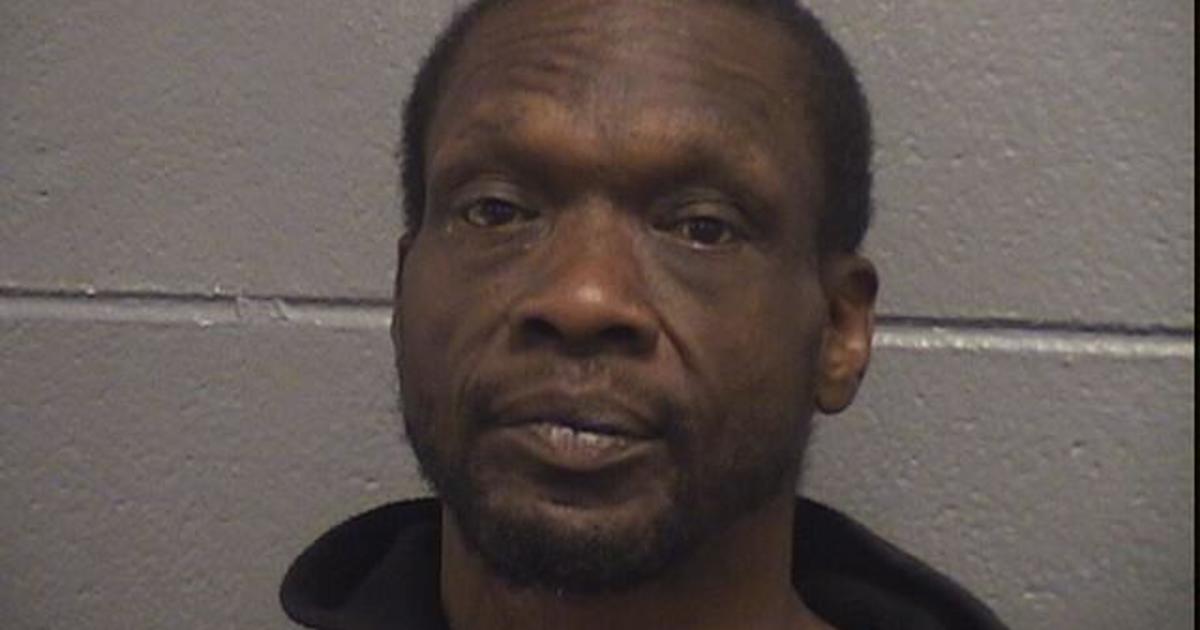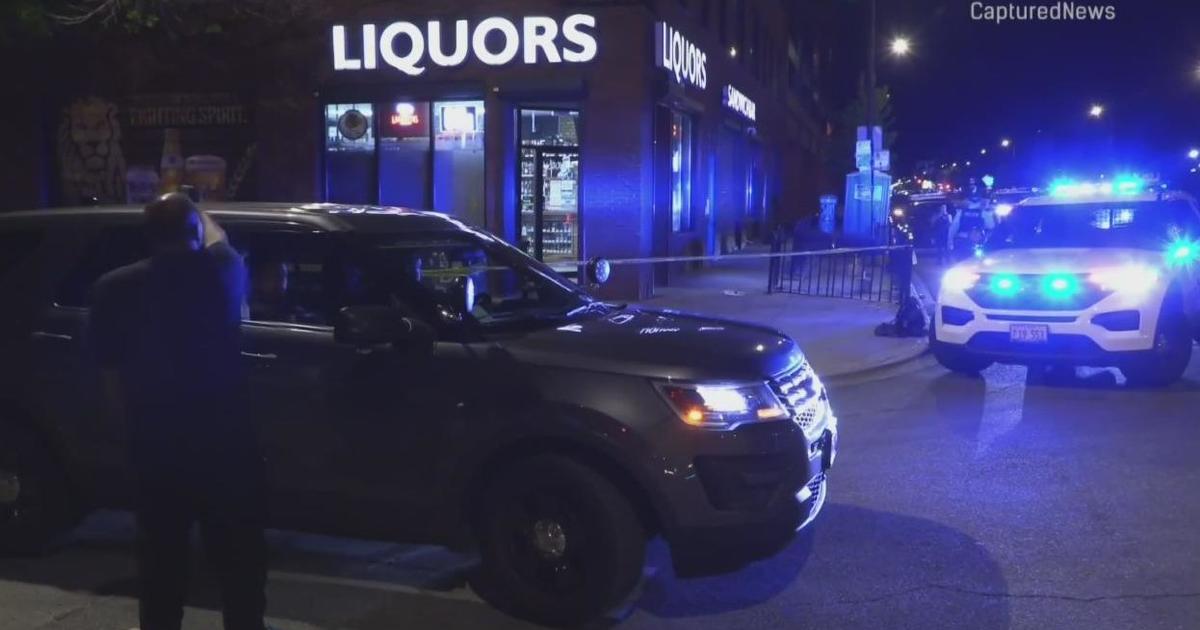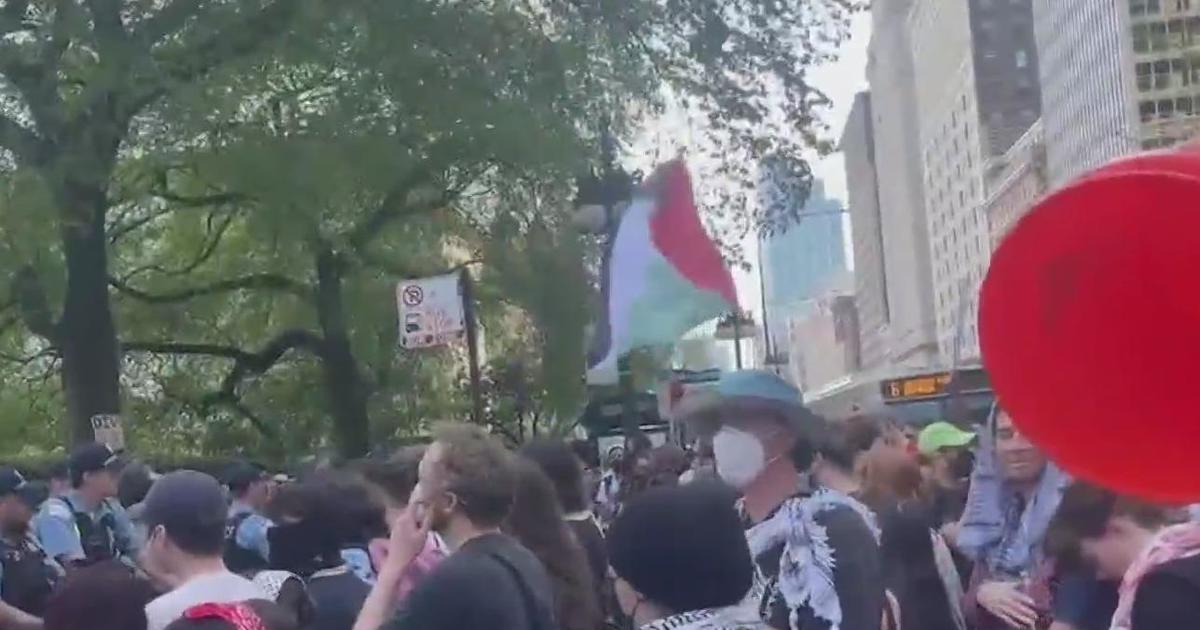Riding along with the Chicago Vehicular Hijacking Task Force as they work to take on the carjacking crisis
CHICAGO (CBS) -- When a car pulls up beside you or behind you, or cuts you off, you're likely to be alarmed these days as a carjacking crisis terrorizes drivers around the city.
Just how bad is it? The Cook County Sheriff's office said there have been an average of five carjackings every day.
There is even a dedicated task force to stop carjackings. CBS 2's Joe Donlon rode along with them recently to see how it works, if it works, and if the city could be doing more.
WEB EXTRA: Tracking Chicago's Carjackings
For the Chicago Vehicular Hijacking Task Force, the night started with roll call at the Cook Count Sheriff's command post in the Austin community.
Sheriff's police Sgt. Phil Mackey emphasized that safety is number one, and advised using a helicopter to the task force's best advantage.
"Be safe," were the parting words as the task force set off – and those words echoed on the first top of the night.
A car tracked by the Task Force had crashed into a fence at 44th and Wells streets in the Fuller Park neighborhood. Shots were fired, three people were arrested, and that helicopter was put into the air.
A total of five guns were found in the car, including a fully automatic weapon.
"It's also a big deal because they're not accurate, so you're looking at 50 rounds coming down in seconds," said sheriff's police Lt. Patrick Donovan.
Donlon noted to Cook County Sheriff Tom Dart that with visible, conspicuous resources such as helicopters, the carjackers know police are coming for them. And yet, the crimes continue.
"And it will continue until we can get them quickly," Dart said.
Donlon: "This is every night."
Dart: "Oh yeah, yeah. I mean, the numbers are the numbers – and they're horrible. For every one we get, there's more and more and more coming."
Dart says there is one thing that would be a game-changer for the carjacking problem we see playing out on Chicago streets – and it falls on manufacturers.
"With tracking, we could bring this ting almost to an end," Dart said.
Most cars made since 2015 have tracking devices. But not all companies cooperate with law enforcement when vehicles are stolen or carjacked.
Dart is supporting Illinois and federal laws that would require car manfacture3rs to staff a 24/7 tracking center.
"You're trying to tell me these billion-dollar corporations can't hire people to work a call center to go after what is probably the largest increasing crime anywhere in the country - that's vexing everybody; and scaring people to death where they don't go into cities anymore and they're afraid to leave their houses – and they can't put together a call center?" Dart said. "Come on. That's garbage."
Back on the road with the task force, there was a report of a freshly stolen vehicle. Lt. Donovan – who has spent 24 years with the country – said undercover units were behind the stolen car and helicopters were on top of it.
Donovan took the assignment with the task force two years ago to solve a problem that is only getting worse.
"We've got to try all sorts of different avenues," Donovan said.
He says it is like fishing – it takes patience, persistence, and an understanding that some suspects will slip off the hook.
But the suspect in the theft of that freshly-stolen vehicle did not. Officers followed that stolen vehicle from the Dan Ryan Expressway to Interstate 57, where they pulled over and arrested the driver – and recovered the car.
But minutes later, a new carjacking call came in. North of the Austin community on the West Side, four teenagers with guns had stolen a gray Dodge Charger with what first came in as a partial license plate "A-M."
"Chances are they are going to use that car in some type of a crime or drive-by," Donovan said. "These are just the guys we want to get off the street."
All officers could do at that point was hope the car would show up on a license plate reader. Chances are you've driven past one of them without knowing it – hundreds are set up around the city, and they're critical.
The license plate readers are a high-tech tool that reads license plates and alerts police to stolen or carjacked vehicles. The task force officer agreed it would be all but impossible to hunt down carjackers without the license plate readers.
In this case, sure enough, there was a hit. One of the readers picked up the carjacked Dodge on Lower Wacker Drive.
So that was where the task force went, using lights and sirens to weave through traffic and get downtown as quickly as possible.
It took about half an hour for the Dodge Charger to pop on the license plate reader.
"A half hour, you can be sure that four armed guys downtown are up to no good," Donovan said.
When the license plate reader clocked the Dodge, it was eastbound on Lower Wacker Drive at State Street. Chicago Police units finally got eyes on the car, and the task force was closing in – when the CPD decided to pull the plug.
Donlon: "You had to call off the pursuit?"
Donovan: "Yeah, too dangerous. Too densely-populated down here. Not worth the risk."
But that doesn't mean they had given up.
"Now we wait. We've got three minutes until the chopper comes. They'll be looking for erratic driving, a car that fits the description – see if it hits any of the license plate readers or other ground units spot it," Donovan said. "It'll show up somewhere, and when it does, we'll be there."
No Fear: Kids Driving the Chicago Carjacking Crisis
For the time being, the task force shifted to two new carjackings – both on the city's West Side. One of them illustrated how hard it can be to catch suspects.
"The victim stated to track his cellphone," Donovan said. The cellphone was tracked to this location, where Chicago Police located it."
But the phone wasn't with the car or the carjackers. It was stationary.
Donlon: "So they knew to throw the phone out of the car."
Donovan: "They did. They knew that police would probably track the phone."
Sheriff Dart joined Donlon and the task force for part of the night. Donlon pointed out that people will likely watch the task force in action and wonder why authorities aren't doing more to stop carjackings.
"They have every reason to be asking that question. That needs to be directed at the car manufacturers – pure and simple," Dart said. "The law enforcement side of it, I challenge people to find something else that we could be doing that we're not doing right now."
It is a nonstop game of cat and mouse that ended after midnight in this case. But another shift was set to come on, as the needle-in-a-haystack chase never ends.
But Lt. Donovan said he was not disappointed that the task force didn't catch anyone that night.
"No, because I think we deterred a lot of people," he said. "They saw us out here. They saw us out here. You know, there was a couple guys we lost, but they know that we're on them. You know, we had to make those four armed men run. They were scared. And that's what we want to do. We want to let them know – we're out here, and we're going to hunt you."
The four teenagers who found their way downtown in that Dodge did get away. The Dodge they were in turned up the following day, 10 blocks away from where they took it north of Austin.
Sheriff Dart told us the suspects often change cars and drivers, which makes it hard to prosecute – even when they do catch them.



